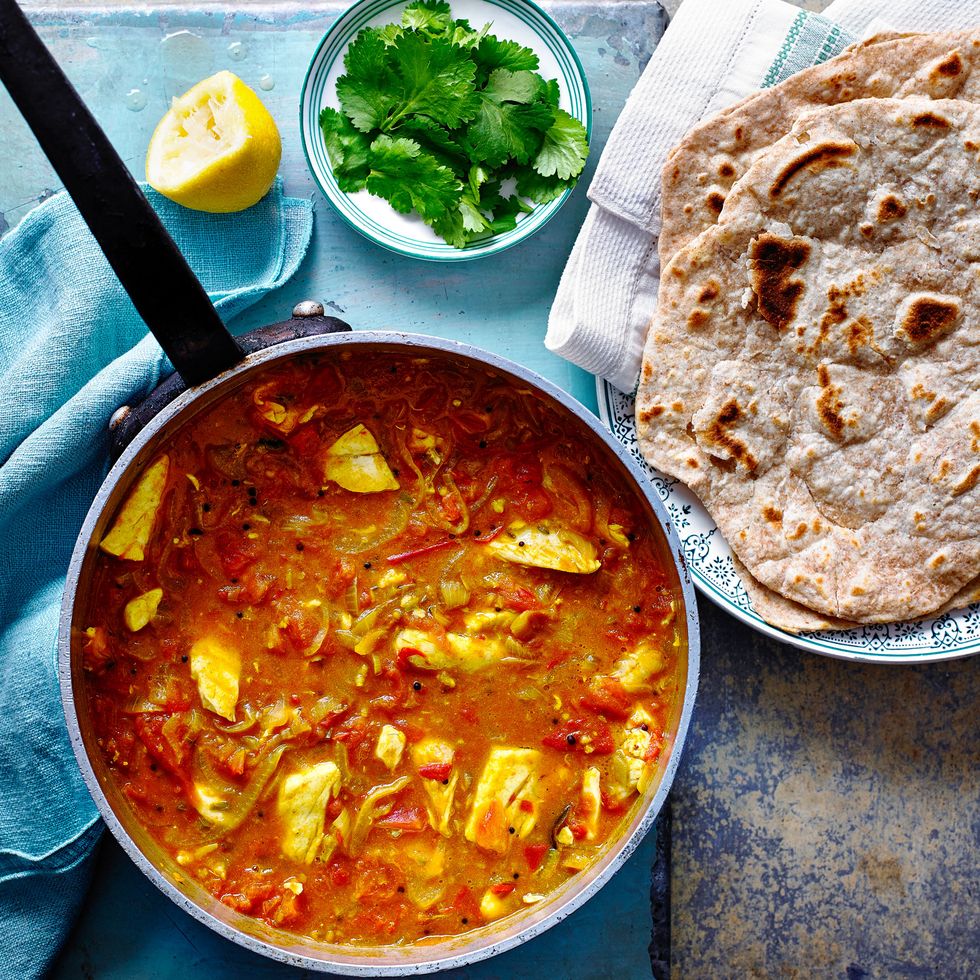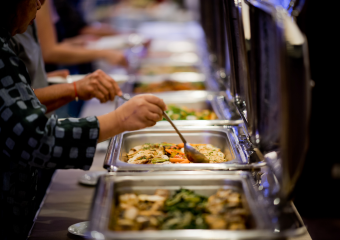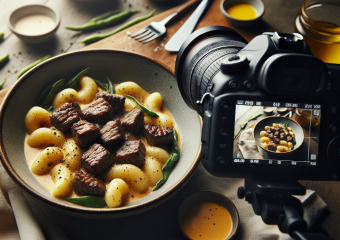Ultra-processed foods: What you need to know – Good Housekeeping uk
Love Good Housekeeping and want more of our Triple-Tested recipes, home tips, fashion inspiration, essential consumer advice and so much more delivered to your inbox? Sign up to our FREE weekly newsletters, sit back and enjoy!
News about diet and its link to our health is cyclical. Reserach and headlines emerge, new ways of eating are suggested and we move on to the next trend. But one health warning has stopped science in its tracks and prompted global discussion is the risk posed by ultra-processed foods (UPFs).

The US University of North Carolina at Chapel Hill called them ‘a global threat to public health’; while Professor Tim Spector has referred to them as ‘a future ticking time bomb’.
As a nation, we have a strong appetite for ultra-processed foods (UPFs) and we’ve become accustomed to salty, sugary, fatty products in our diet. UPFs are estimated to make up 57% of the UK diet.

They’re marketed brilliantly, often cheaper than healthier options and made to be extremely tasty. But they are now considered to be as dangerous to our wellbeing as smoking or drinking alcohol to excess, and their downsides are clear.
Dr Rob Galloway is an A&E consultant and an honorary clinical professor at Brighton and Sussex Medical School. It’s his experience that poor diet is responsible for many of the cases he sees at work: ‘In my job, I’m picking up the problems of failing public health. When I go on shift, 20 to 30 people are waiting for a cubicle. ’
Danger in our diet
Weight issues have been a problem in the UK – which has the tag of the fourth most obese country in Europe – for a while. But these are just the beginning. Long-term consumption of UPFs has been found to prompt multiple health issues, with no organ escaping. In the largest study of UPF effects to date by The British Medical Journal (BMJ), 32 different health dangers were reported.

The study makes for alarming reading: a higher UPF intake can be linked to cardiovascular problems; type 2 diabetes; increased risk of cancer; high blood pressure and other damaging effects on daily health, such as respiratory issues and wheezing.

The issues aren’t only physical. Problems sleeping and experiencing low mood, anxiety and depression are all linked to UPF consumption, too. Most frightening is the link between UPF consumption and early death.
Dr Melissa Lane, a postdoctoral research fellow at Deakin University in Australia, was involved in the BMJ review of evidence about UPFs. She is hopeful that the findings will be a wake-up call.
‘We’ve known for a while that UPFs high in salt, sugar and fat – aka junk food – weren’t ideal. We needed a reminder that freshly prepared, unprocessed and minimally processed foods should be the basis of our regular diets.’
What are ultra-processed foods?
So, how do we work out if what’s in our cupboards and a regular item in our shopping trolleys is doing us – and our families – harm? There are several scales of processed food.
The NOVA food classification system was developed by researchers at the University of São Paulo in Brazil in 2009. There are four categories that foods fit into, depending on their level of processing during production:
- Unprocessed or minimally processed foods: produce such as fruit, vegetables, milk, fish, pulses, eggs, meat, nuts and seeds that have no added ingredients and have been barely altered from their natural state.
- Processed ingredients: foods that are added to other foods rather than eaten by themselves, such as salt, sugar, butter and oils.
- Processed foods: these are foods that are made by combining foods from groups 1 and 2, which are altered in a way that home cooks could do themselves. They include jam, pickles, tinned fruit and vegetables, home-made breads and cheeses.
- Ultra-processed foods: UPFs typically have five or more ingredients. They tend to include many additives and ingredients that are not typically used in home cooking, such as preservatives, emulsifiers, sweeteners and artificial colours and flavours. These foods generally have a long shelf life.
Ultra-processed foods include ice cream, ham, sausages, crisps, mass-produced bread, breakfast cereals, biscuits, carbonated drinks, fruit-flavoured yogurts, instant soups and some alcoholic drinks, including whisky, gin and rum.
It’s the fourth category the experts are most concerned about. And Britain’s cost-of-living crisis has meant that UPFs, which are often cheaper than fresh, unprocessed alternatives, are frequently the only option for families and individuals squeezed by rising bills.
Because UPFs have entered our diets fairly recently and are less expensive, it’s often younger adults who consume a lot of them and Dr Galloway has seen evidence of this at work.
‘Often, young people have had high-fat and high-sugar food choices for their lifetime. I’m seeing people with type 2 diabetes in their 20s, when it was usually a condition you would see in much older people.’
And Dr Lane has grave news for younger people if they don’t begin to transform their eating habits: ‘Longer-term health risks include both adverse physical and mental health, as well as early death.’
How did we get here?
While the news about the potential damage of UPFs is stark, our appetite for processed goods hasn’t happened overnight. It would be easy to blame a takeaway culture or the handy convenience foods busy households rely on, but it’s more complicated than that.
Dr Lane tells us that our UPF habits stem from more than one cause. ‘We’ve grown dependent on ultra-processed foods for several reasons. One big factor is that these foods can be cheaper and more convenient than less processed options. Until fairly recently, we also lacked effective methods or frameworks to distinguish foods based on varying levels of industrial food processing.’
‘UPFs are estimated to make up 57% of the UK diet. This means that education about prioritising unprocessed and minimally processed foods has been slower to catch up. Plus, these foods are made to be tasty, and they’re heavily advertised.’
As with most lifestyle choices, economics plays a part. While we might be told to eat more fresh fruit and veg and lean protein, the increase in food prices means that these options aren’t always accessible. Instead, UPFs are often more budget-friendly.
Another less obvious lifestyle change has affected the boom in UPFs in our diets. According to the Sainsbury’s Future Of Food report, vegetarians, including vegans, look set to make up a quarter of the UK population by 2025. Often, people go vegan believing that it’s healthier. But much of the vegan food in our supermarkets is no less processed than the ready meals containing animal products. So, consumers buy vegan in the expectation that it’s better for them but, in fact, the processing methods involved could make it a UPF.
Adapting our eating habits isn’t a switch that can be flicked instantly. Individuals can – to a degree – control what is on their own plates, but external forces come into play here, too. School dinners have long been a subject for discussion – chef Jamie Oliver was vocal about this almost 20 years ago.
Government involvement
Overhauling a nation’s food habits and decades of UPF-based diets is no quick fix. Alarming headlines can only do so much. The experts believe that for considerable progress to be made, change has to come from the top.
Dr Melissa Lane believes governments need to intervene – in some countries, steps have already been taken. ‘The evidence is sufficient for government action. Key policies and public health measures have already been implemented in South American countries such as Brazil. Recommendations to limit UPFs and replace them with less processed alternatives have also been issued in France and Malaysia, and by the American Heart Association.’
Some methods other countries have put in place include front-of-pack labels on UPFs; restricted advertising; banning sales of UPFs near hospitals and schools; and national dietary guidelines.
In 2018 in the UK, a sugar tax was applied to soft drinks. If products contain sucrose, fructose, glucose, lactose or galactose, their manufacturers are liable fora levy. This cost is transferred to the consumer, who pays more for the drink.
Dr Rob Galloway thinks a similar system could be applied to UPFs: ‘We need a tax like the one on sugary drinks, then to use those funds to subsidise healthier food.’ He adds: ‘Government policy needs to change. The Government has the power to give contracts for hospital and school catering to companies that don’t provide UPFs. They can insist on vending machines with healthy options.’
Later this year, the House of Lords Select Committee on Food, Diet and Obesity will publish its first report. This will examine, among other things, UPFs’ influence on obesity and other health issues, and what measures should be considered to get ahead of the UK’s obesity problem.
While we may be waiting a while for new policies and guidelines, there are steps individuals can take, too. It might sound time-consuming, but by reading food labels, you’ll have a clearer idea of the level of processing your store cupboard staples have undergone. Instead of trying to remove all UPFs from your plate, try to increase how many minimally processed foods you eat.
What to eat and what to avoid
While we might feel inspired to immediately overhaul our eating habits, Healthspan registered nutritionist Rob Hobson says altering our diets shouldn’t be an overnight switch: ‘Take it slowly and make lots of small changes that will be achievable long-term. Confectionery, sweet puddings, savoury snacks and processed meat are better swapped out with healthier choices. But rather than demonising foods, focus on the types you should be trying to eat more of.’
Rob also says the supermarket can still be a place for healthy meal and snack options. ‘There are things on the supermarket shelf that are not UPFs and still a good option.’ These can include individual cheeses; fruit and nut bars; hummus with bread sticks or carrots; plain rice cakes; plain popcorn; nuts and seeds; seaweed thins and pots of olives.
Rob also suggests making your own sauces or condiments – shop-bought versions can often be high in additives, sugar and salt. ‘Try making your own pesto or ketchup. If you do it in bulk, you can freeze them and save money.’
And Rob is keen to reiterate that some processed food in our diets is fine: ‘It’s okay to eat UPFs once in a while – such as on pizza night. Just try to eat fewer of them.’







